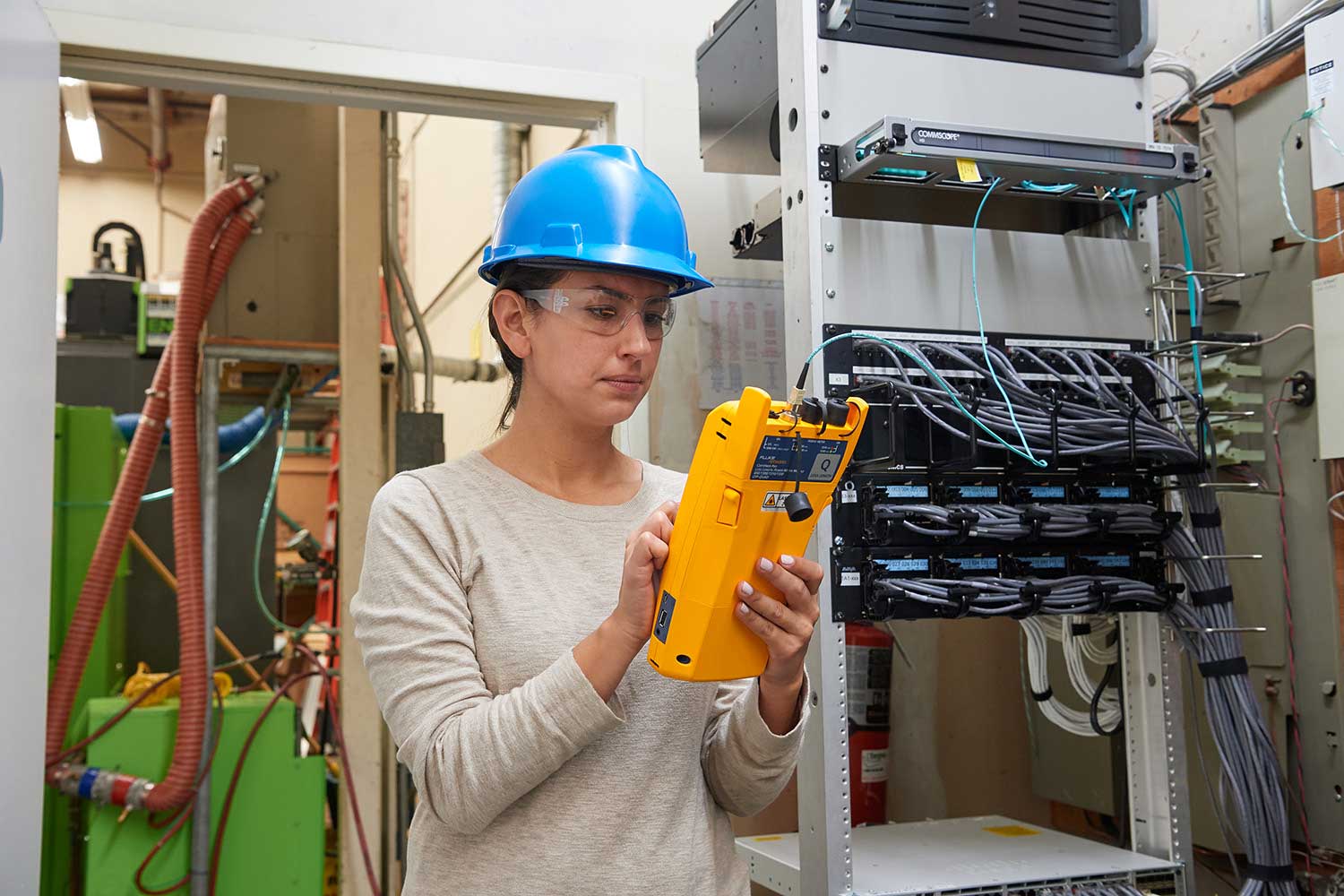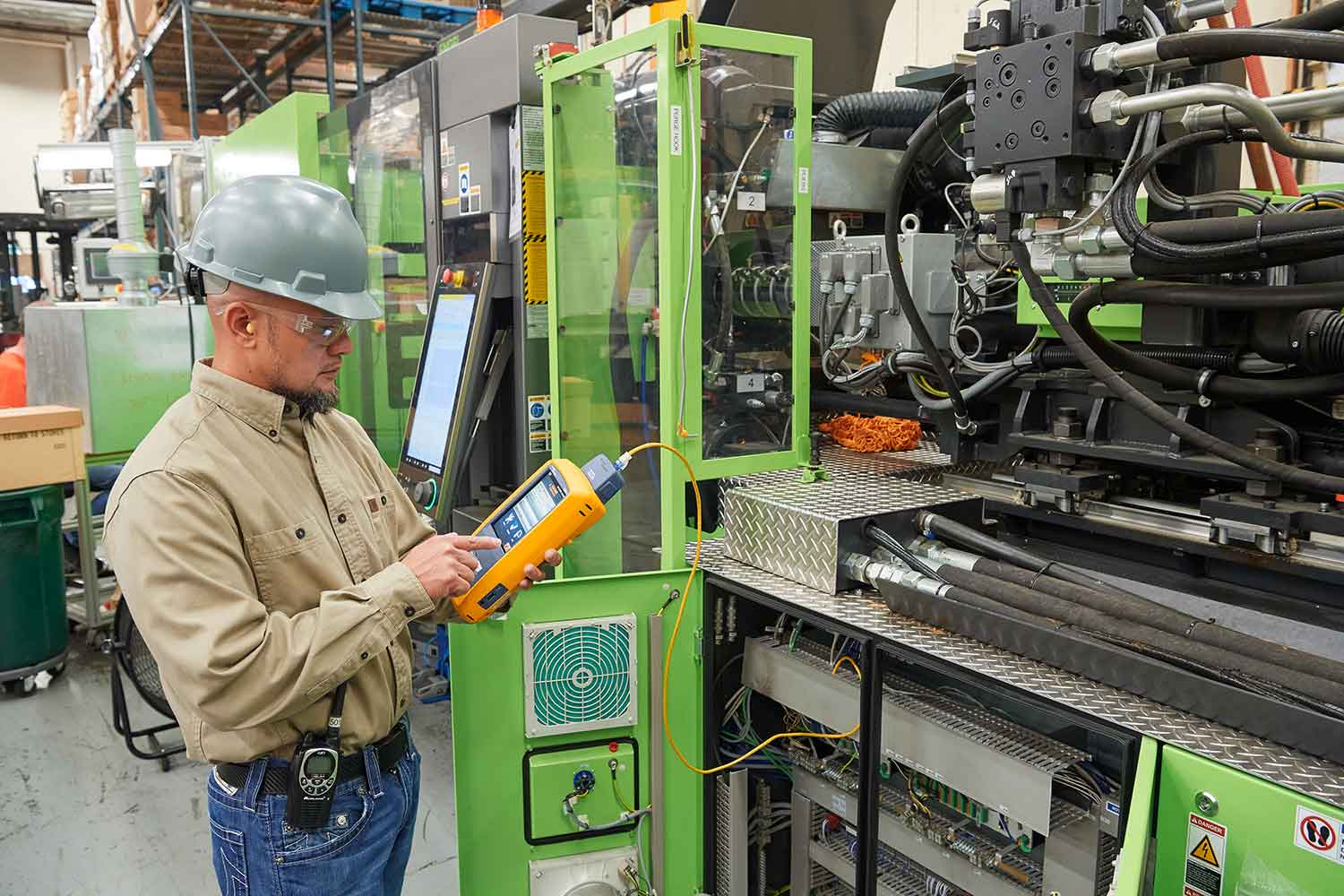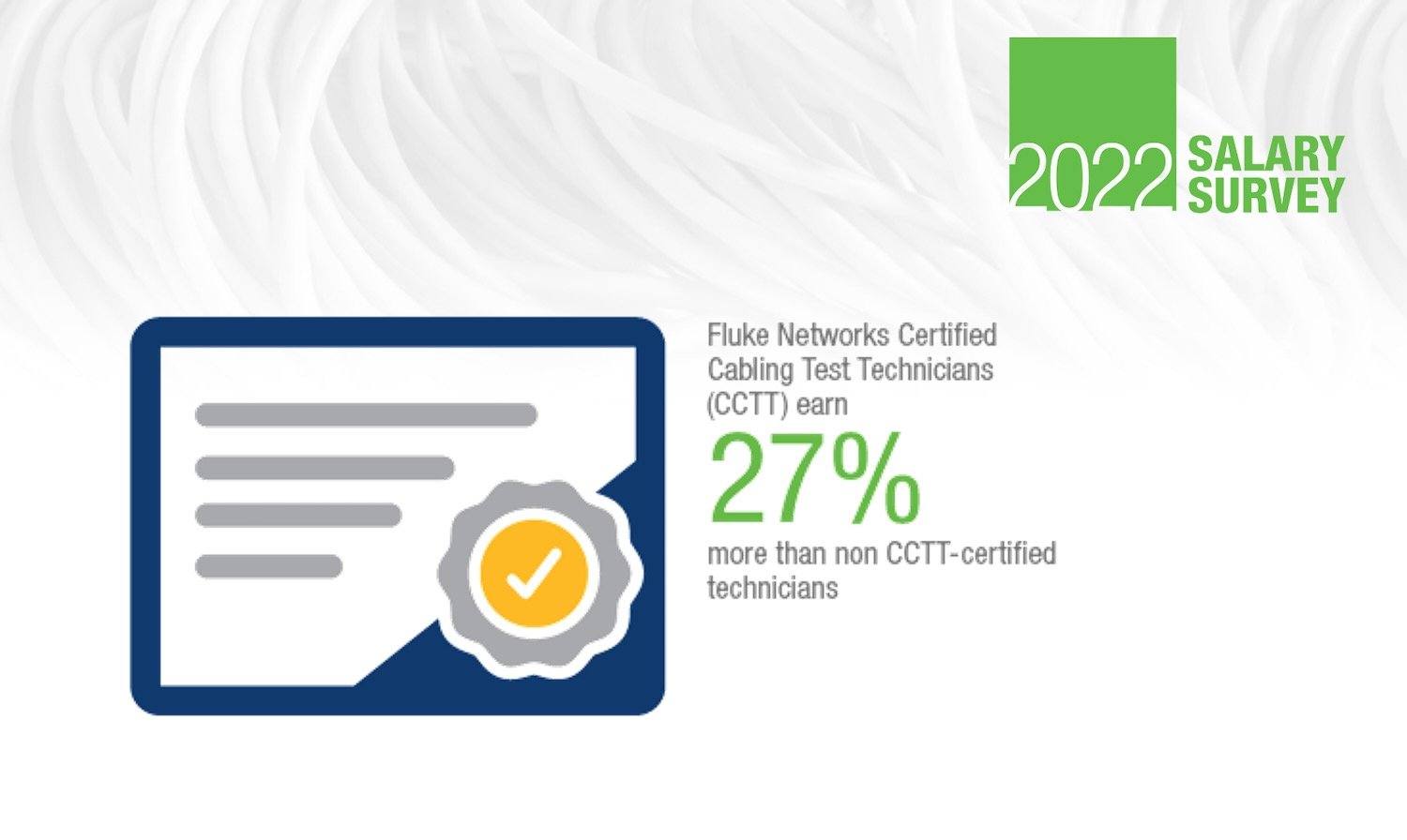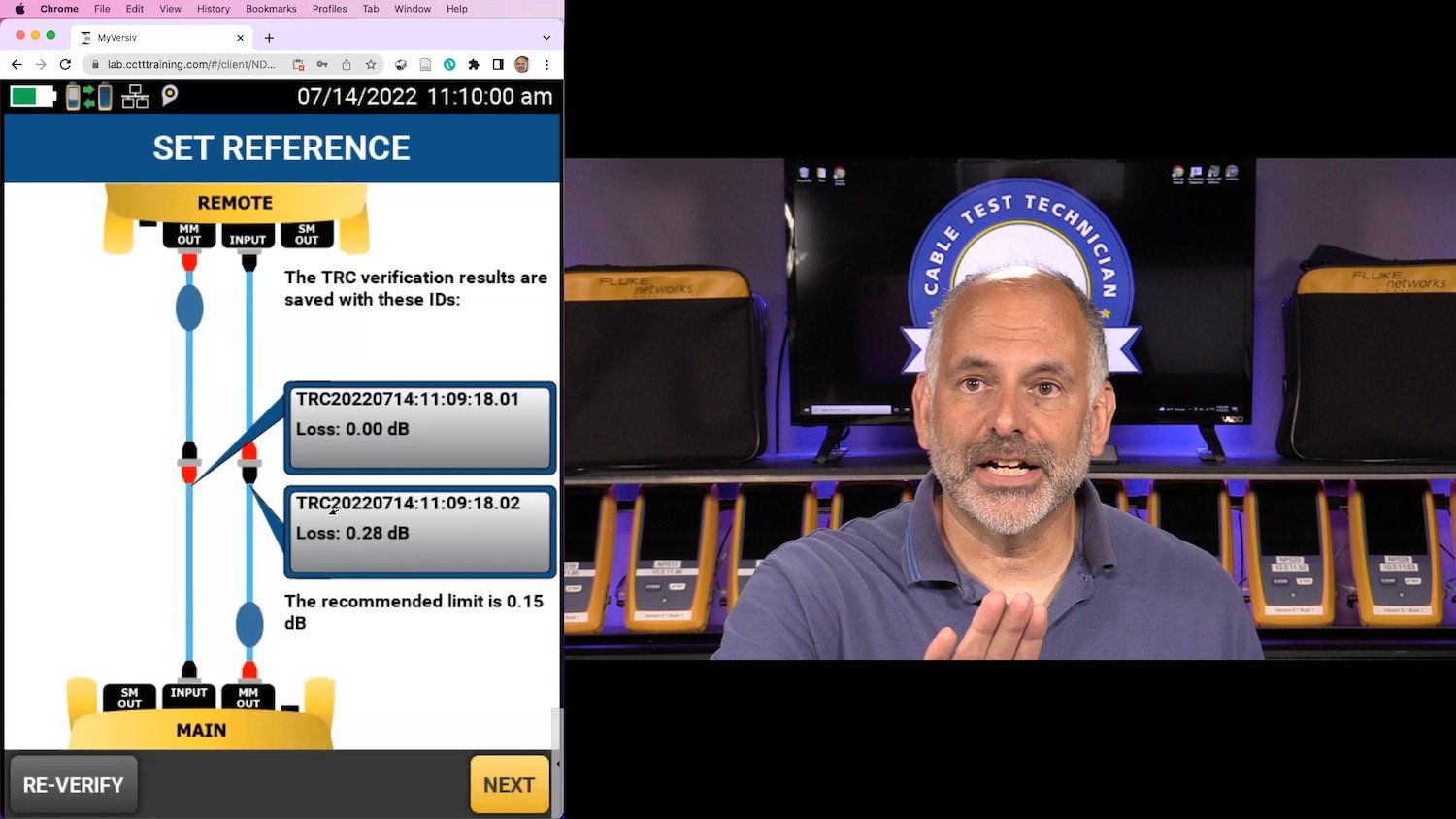¿Vale la pena la certificación de técnico certificado en comprobación de cableado (CCTT)?
25 de noviembre de 2022 / General, Standard and Certification, Installation and testing, Best Practices
Mantenerse al día de los desarrollos tecnológicos críticos en la infraestructura de cableado de red le ayuda a usted y a su empresa a estar al día y ser competitivos. Una forma de hacerlo es participando en un programa acreditado de formación y certificación, como la formación Certified Cabling Test Technician™ de Fluke Networks.
Si bien la formación y los exámenes pueden parecer costosos si se miden en tiempo durante el que no se atiende a los clientes, la certificación puede ser una prueba inmensamente valiosa de sus habilidades y experiencia. ¿Valen la pena las ventajas que ofrece la formación para la certificación? Veámoslo.

Los técnicos certificados tienen siempre experiencia actualizada.
Los certificados pueden ser mejores que otros títulos e incluso la experiencia por sí sola por varias razones. La formación certificada integra las normas y recomendaciones más recientes del sector. Un certificado actual permite a clientes potenciales y empleadores evaluar hasta qué punto están actualizadas sus habilidades. Este demuestra un determinado nivel de conocimientos y experiencia que hacen que usted (y sus empleados) sean más eficientes, efectivos y, por lo tanto, valiosos en el campo, lo cual es especialmente importante para la infraestructura de cableado de red crítica en la que funciona nuestro mundo.
Por eso Fluke Networks es un firme defensor de la formación continua, y por eso desarrollamos nuestro programa de técnico certificado en comprobación de cableado (CCTT) en torno a nuestro sistema de certificación de cableado Versiv™ y las soluciones de software de gestión de pruebas de cables LinkWare™. Estos cursos no solo mejoran las habilidades de diagnóstico e instalación de cableado sino que también aumentan la efectividad y la productividad de los técnicos que prueban, certifican y resuelven problemas en sistemas de cableado estructurado.

Los técnicos certificados por CCTT pueden hacer más.
Los técnicos certificados pueden ser más efectivos en el campo porque tienen conocen con más detalle de las recomendaciones del sector y hacen un uso más eficiente de sus instrumentos.
- Pueden hacer los trabajos más rápido al utilizar con la mayor eficiencia posible las funciones más recientes de Versiv y las capacidades del software LinkWare.
- Pueden entregar resultados de pruebas que serán aceptados por los fabricantes y los clientes, evitando costosas repeticiones de pruebas.
- Son aptos para proyectos que requieran certificación CCTT.
Un gestor de proyectos de contratación nos dijo que, desde que realizó el curso, la confianza de su equipo había aumentado considerablemente y la necesidad de que él interviniera en la resolución de problemas en el campo se redujo a casi cero, lo cual le permitió ahorrarse de 6 a 10 viajes al mes.
Los técnicos certificados CCTT pueden cobrar más.
La certificación no solo indica que un técnico puede hacer más, sino también cobrar más. En la encuesta de salarios más reciente de Fluke Networks para profesionales de cableado estructurado realizada en EE.UU., los técnicos con certificación CCTT reportaron sueldos un 27% más altos que los de los técnicos sin certificación CCTT. La certificación también es valiosa para los titulares de certificados de diseñador de la distribución de las comunicaciones registrados (RCDD) de BICSI, quienes cobraban un 17% más que sus compañeros de sector no certificados.

Alrededor de dos tercios de los encuestados afirmaron trabajar en entornos en los que se requería certificación CCTT. La certificación CCTT puede marcar la diferencia entre poder licitar un proyecto o tener que buscar negocios en otro lugar.
Fluke Networks hace que la formación de nivel experto sea más accesible
El programa de formación CCTT de Fluke está diseñado para adaptarse a las apretadas agendas y los presupuestos ajustados a los que se enfrentan los instaladores de cableado de red.

BICSI Continuing Education Credits
Como el CCTT cuenta con un examen de certificación, permite obtener créditos de Educación Continua BICSI.
Una formación efectiva produce más resultados que no son rechazados.
El Versiv hace un montón de cosas. Incluso a un electricista experimentado no le es fácil saber todo lo que puede hacer el instrumento y cómo hacerlo correctamente”, dice el director de formación Robert Luijten, quien lanzó el programa CCTT en Europa en 2004.

Gracias a la formación, los estudiantes trabajan de la forma más eficiente posible y pueden generar resultados de pruebas que no son rechazados. Porque si los resultados de las pruebas son rechazados, tienen que volver a realizar el trabajo”.
Los estudiantes parecen estar de acuerdo. “Disfruté muchísimo del curso”, dijo un técnico superior. “Llevo más de diez años usando comprobadores de Fluke y el curso ha sido tan informativo que he aprendido algunas cosas que desconocía.




